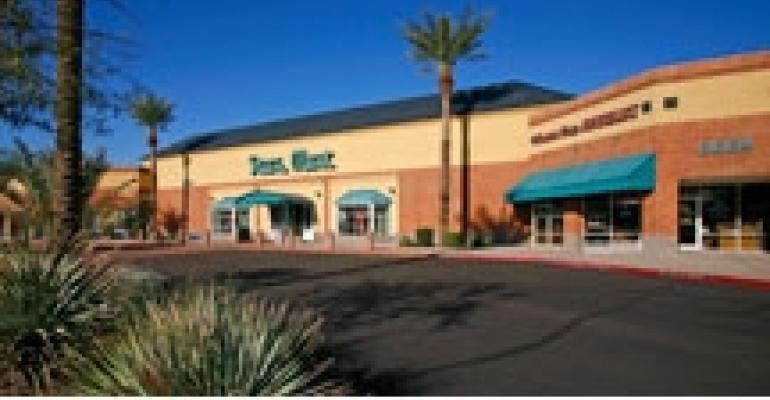
Regency Centers has launched an irrigation pilot program that will save water and money.
The owner, operator and developer of grocery-anchored and community shopping centers expects to save 42 million gallons of water per year over the 36 pilot properties, or a total of $125,000. The payback period is less than two years. “It will also minimize sewer overcharges, landscape replacement and maintenance costs that can result from over-watering,” says Mark Peternell, vice president of sustainability for Regency Centers. The company is headquartered in Jacksonville, Fla.
All 36 properties have been retrofitted with “smart” irrigation controllers. “[The smart controllers] replace your conventional controllers, which are typically just time clocks — you want the irrigation on for an hour every day in the morning and an hour every day in the afternoon,” explains Peternell.
The smart irrigation controllers utilize local weather conditions supplied by satellite from the National Oceanic and Atmospheric Administration (NOAA). “The controller looks at things such as temperature, humidity and other weather conditions to automatically adjust the amount of water that’s going to be emitted to the landscape,” he says.
If weather is hot and dry, the controllers allow more water to be released; if cold and humid, less water is released. In addition, the controllers are programmed by onsite weather stations based on plant material and specific water needs.
Of the 36 properties in the pilot program, 27 are located in shopping centers in California. “Due to water shortages, you have two factors that come into play: water rates are going up because water is in higher demand. And in a lot of cases, [California municipalities] have rebates in place for installing water conservation products such as smart controllers. They’re trying to come up with ways to reduce that demand on the municipal water system,” says Peternell.
If the irrigation controllers bring in the anticipated savings, Regency will roll out the devices to “every project that makes financial sense.” That could translate to Regency’s entire portfolio of about 440 properties.
Why this, why now? “I think water is becoming an increasingly stressed natural resource and as responsible landlords we need to find a way to reduce our consumption of water, and especially in these economic times,” says Peternell.

